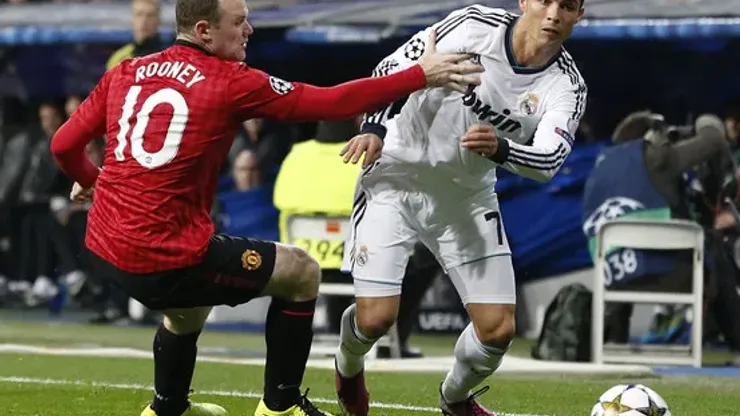UEFA has arranged a meeting on Monday to discuss new Financial Fair Play regulations which would make debt reduction part of its guidelines. There has been growing criticism that the governing body’s efforts are focused solely on the over-investment at European clubs, while ignoring the accumulation of debt.
Gianni Infantino, UEFA general secretary, said: “We’re now focused on losses and to repay debt is part of the loss that the club can make at the end of the season. But, certainly, the question of debt is something that can be put on the table.”
News of this proposal will be a concern to Manchester United, who – despite massive commercial success – are £350 million in debt, after being saddled with a £790 million burden by the Glazers takeover in 2005.
Another club which would be effected by this new regulation would be Real Madrid.
It was reported in September that the Spanish club’s total debt had risen to £474 million. Of that money, £59 million is due to the banks and £190 million is long-term debt; the remaining money (roughly £225 million) is short-term debt.
Should UEFA make debt reduction part of its new FFP regulations, United and Real Madrid will remain unpunished for the debt accumulated to this point. But the governing body will likely propose regulations which would force the European giants to ‘balance their books’ in a more timely fashion or face heavy sanctions and/or competitive bans.
Paris Saint-Germain and Manchester City have been invited to the UEFA meeting on Monday in Nyon to discuss how the rules are being implemented. Both clubs were fined £49m after infringing the European governing body’s ‘break-even’ rules.
PSG and City officials have long argued that FFP rules are unfair because their losses are covered by cash from their owners, while clubs like United and Real Madrid are allowed to continue carrying large debts.
Last May, Manchester City chairman Khaldoon Al Mubarak told the club’s official website: “We have zero debt. We don’t pay a penny to service any debt. For me, that is a sustainable model. However, our friends at UEFA seem to believe otherwise. They have their views, we have ours.”
In September, PSG president Nasser Al-Khelaifi said Financial Fair Play was “unfair” and declared that it was “not good for football”.
“For me, FFP is unfair. It stops new investors from coming into football,” said Al-Khelaifi. “It protects the big clubs and obliges the smaller ones to remain small clubs.”
“If investors are prevented from coming into football, they will invest in Formula One or elsewhere.”
“It’s not good for football. We are ready to work within the rules but I hope UEFA are going to change it next year because a lot of clubs have complained. I hope a solution can be found.”
Regardless, UEFA’s general secretary is pleased with the progress FFP has made since its implementation at the start of the 2011-12 season. Infantino pointed to figures showing the amount of money owed by clubs in its competitions across Europe has decreased from £57m to £9m.
Infantino said aggregate losses of clubs across Europe have been reduced from £1.34 billion in 2011 to £630 million last year and revenue growth has also surpassed wage inflation for the first time.
“We don’t think we are sitting on the truth,” Infantino said. “It should be modified over time to take into account the situations we have. The situation in 2008 when we started discussing FFP was completely different than today. We have won the first match of FFP, which was to stabilize the accounts and reverse the trends.”
It was also announced on Thursday that UEFA was on the verge of changing the seeding process for the Champions League group-stage. The new proposal would see the top eight seeds comprised of the Champions League holders and the seven domestic league winners from UEFA’s top-ranked nations; currently Spain, England, Germany, Portugal, Italy, Russia and France.
Currently, UEFA ranks clubs over five years of results, which left domestic champions Manchester City and Paris Saint-Germain among the number two-seeded teams (Pot 2) in the Champions League group-stage draw. Arsenal and FC Porto, who placed fourth and third in their respective leagues last season, were included in Pot 1.
Should the new system go through it would place a greater emphasis on winning either the domestic league title or the Champions League crown in order to guarantee one of the coveted Pot 1 spots during the European competition’s group-stage draw.
200+ Channels With Sports & News
- Starting price: $33/mo. for fubo Latino Package
- Watch Premier League, Women’s World Cup, Euro 2024 & Gold Cup
The New Home of MLS
- Price: $14.99/mo. for MLS Season Pass
- Watch every MLS game including playoffs & Leagues Cup
Many Sports & ESPN Originals
- Price: $10.99/mo. (or get ESPN+, Hulu & Disney+ for $14.99/mo.)
- Features Bundesliga, LaLiga, Championship, & FA Cup
2,000+ soccer games per year
- Price: $5.99/mo
- Features Champions League, Serie A, Europa League & Brasileirāo
175 Premier League Games & PL TV
- Starting price: $5.99/mo. for Peacock Premium
- Watch 175 exclusive EPL games per season






